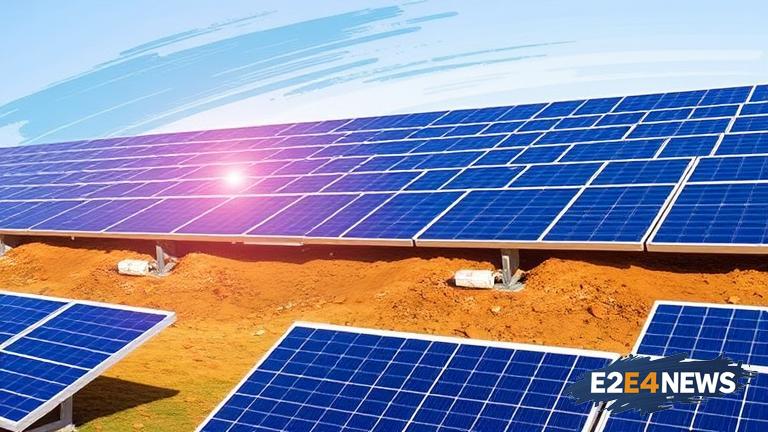Nigeria has made a significant leap in the African solar panel market, surpassing Egypt as the largest importer of solar panels on the continent. According to recent data, Nigeria’s solar panel imports have spiked by 60% in the past year, driven by the country’s growing demand for renewable energy. This surge in imports is a testament to Nigeria’s commitment to reducing its reliance on fossil fuels and transitioning to cleaner energy sources. The Nigerian government has implemented various initiatives to promote the adoption of solar energy, including tax incentives and subsidies for solar panel manufacturers. As a result, the country has seen a significant increase in the number of solar panel installations, particularly in the commercial and industrial sectors. The growth of the solar panel market in Nigeria is also driven by the country’s rapidly expanding economy and increasing energy demand. With a population of over 200 million people, Nigeria is one of the most populous countries in Africa, and its energy needs are expected to continue to rise in the coming years. The solar panel market in Nigeria is expected to continue to grow, driven by the government’s efforts to promote renewable energy and reduce the country’s carbon footprint. In addition to the environmental benefits, the growth of the solar panel market in Nigeria is also expected to create new job opportunities and stimulate economic growth. The Nigerian government has set a target of generating 30% of the country’s electricity from renewable sources by 2030, and the solar panel market is expected to play a key role in achieving this goal. The country’s solar panel market is also expected to attract significant investment from foreign companies, particularly from China and Europe. The growth of the solar panel market in Nigeria is not without its challenges, however, and the country will need to address issues such as infrastructure development and financing to ensure the long-term sustainability of the market. Despite these challenges, the future of the solar panel market in Nigeria looks bright, and the country is well on its way to becoming a leader in the African renewable energy sector. The Nigerian government’s commitment to promoting renewable energy is expected to have a positive impact on the environment, and the country’s growing solar panel market is expected to contribute to a reduction in greenhouse gas emissions. The growth of the solar panel market in Nigeria is also expected to have a positive impact on the country’s economy, and the sector is expected to create new job opportunities and stimulate economic growth. In conclusion, Nigeria’s surge in solar panel imports is a significant development in the African renewable energy sector, and the country is well on its way to becoming a leader in the market. With its growing economy and increasing energy demand, Nigeria is an attractive market for solar panel manufacturers and investors, and the country’s commitment to promoting renewable energy is expected to have a positive impact on the environment and the economy. The future of the solar panel market in Nigeria looks bright, and the country is expected to continue to play a key role in the African renewable energy sector. The growth of the solar panel market in Nigeria is a testament to the country’s commitment to reducing its reliance on fossil fuels and transitioning to cleaner energy sources. The Nigerian government’s efforts to promote renewable energy are expected to have a positive impact on the environment, and the country’s growing solar panel market is expected to contribute to a reduction in greenhouse gas emissions. The solar panel market in Nigeria is expected to continue to grow, driven by the government’s efforts to promote renewable energy and reduce the country’s carbon footprint. With the right policies and investments in place, Nigeria has the potential to become a leader in the African renewable energy sector, and the country’s growing solar panel market is expected to play a key role in achieving this goal.
